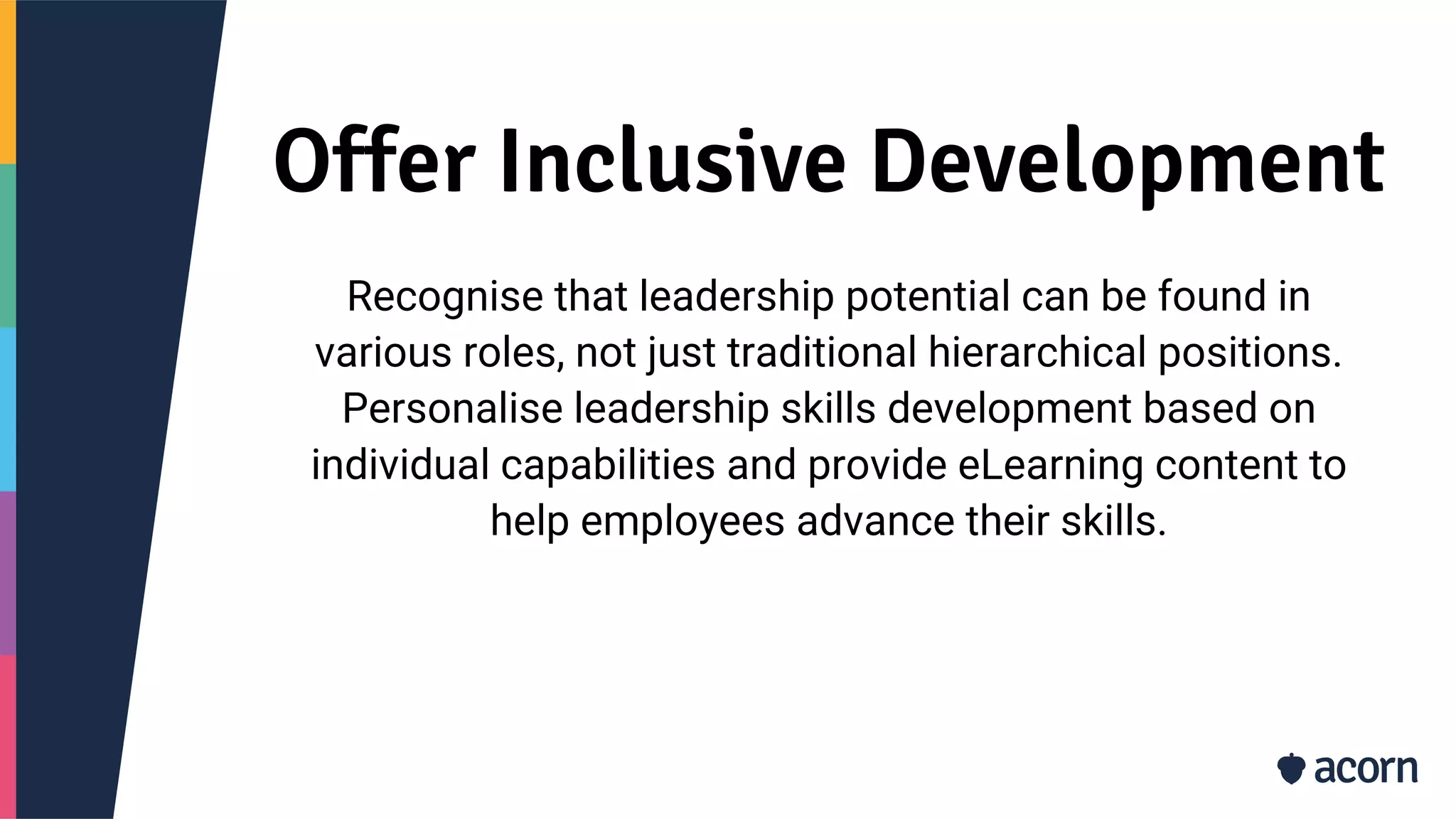Leadership skills are essential for guiding teams towards common goals and shaping workplace culture, influenced by an individual's personality and soft skills. Developing these skills is crucial for effective succession planning and maintaining productivity, as poor leadership can lead to inefficiencies and disconnects within an organization. Continuous leadership development, inclusive training, and personalised growth opportunities are key strategies to enhance leadership capabilities across various roles.















